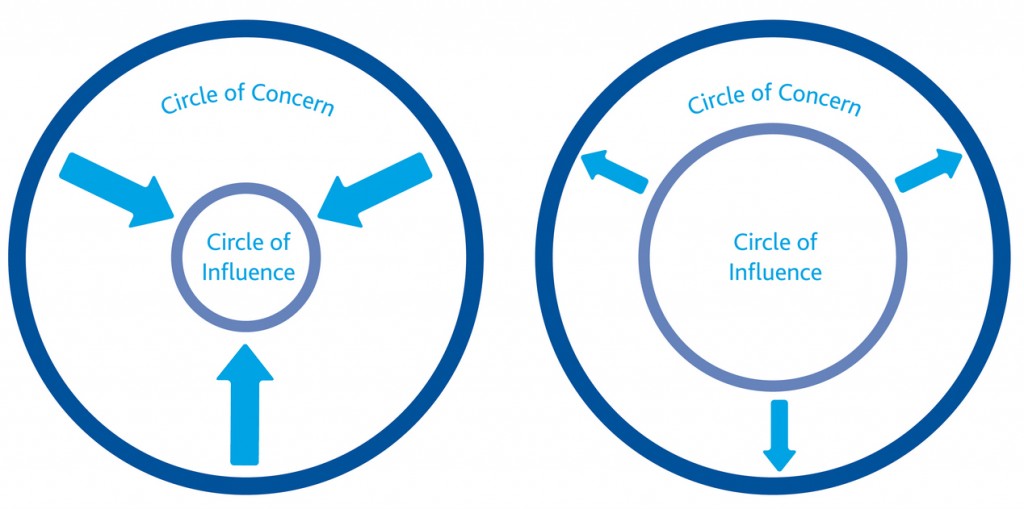My 3 best tips for managing through difficult times – Tip #1
By Darryl Stewart, Head of the Herd
It is so easy to get angry and distracted by things outside of our control. A new sales tax, the death of a friend, a key employee quitting; these are all things that we cannot control. Life must go on. People depend on us.
Great managers are pro-active. They get things done and keep things moving ahead through all kinds of setbacks and sometimes incredible adversity. Bad managers let these things grind progress to a standstill.
The first step in being proactive in challenging times is to keep yourself from getting dragged down and losing your own personal effectiveness. The second step is helping your team stay out of the same cycle.
My number one strategy to keep myself on track and being proactive is understanding the difference between things I can change and things I can’t and using this understanding to focus on the right things. My best tool for this is the circle of concern and the circle influence. This is something I learned from Stephen Covey and I have used almost every day since.
Everything you are concerned about falls into your circle of concern. The price of gas, the latest Hollywood gossip, a personal tragedy; all of these things concern us and can easily dominate our thoughts and actions. They fall in our circle of concern. Things we can change fall into our circle of influence. The thing we control most is our own actions and behaviours.
People who spend too much time focused on things they can’t change will see their circle of influence shrink. They will drive people away from them. We all know people like this. They will have less control over their circumstances over time and less influence. People who focus inside their circle of influence see quite the opposite. As they actively seek to change their own behaviour and actions, to achieve what matters to them, they become far more interesting and motivational to others and their influence and control of their circumstances increase.
With this concept in mind, am I going to choose to complain to my team about the terrible situation we are in or am I going to work with my team to figure out proactive solutions to our situation and encourage everyone to take positive action?
I often use the circle to help my team members. This is the second powerful use of this concept. In confidential discussions with a team member I often draw these circles and explain the concept. Then I ask the person if they think the issue that is distracting or bothering them falls inside their circle of influence. If I am asking this question it is because I don’t think it does, in answering my question, almost always, the person makes an important realization. We can then move forward and figure out how to focus on what they can change.
Next week a second tip on how to keep the team focused in difficult times.
